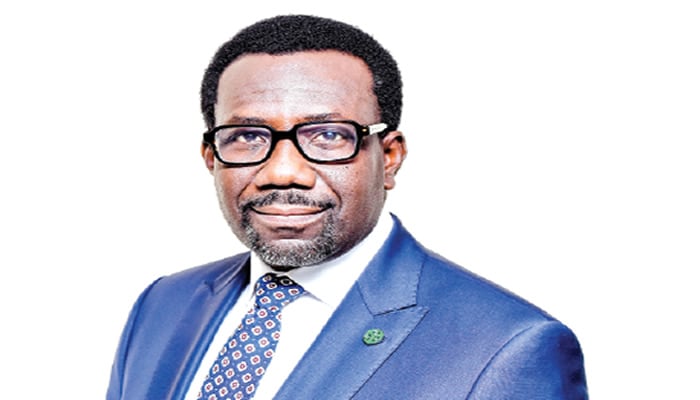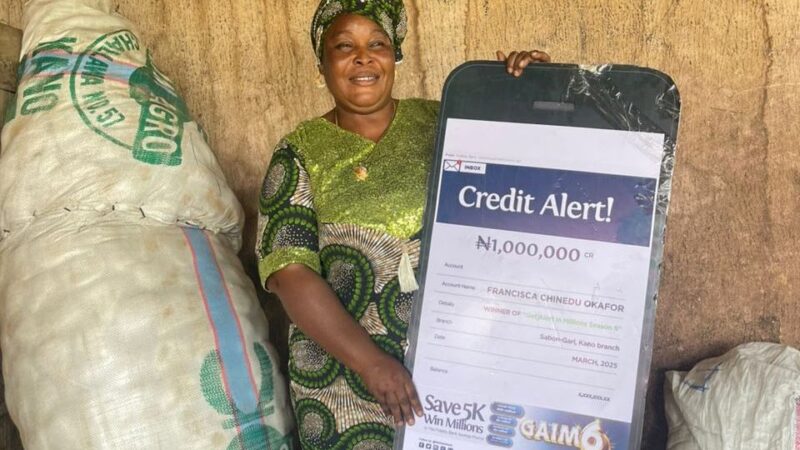Recapitalisation: CBN cautions banks against illicit funds
 The Central Bank of Nigeria has warned deposit money banks to avoid raising capital from illicit sources as part of the ongoing recapitalisation exercise.
The Central Bank of Nigeria has warned deposit money banks to avoid raising capital from illicit sources as part of the ongoing recapitalisation exercise.
The apex bank said the measure was necessary to preserve financial system stability and ensure that the banking sector remains strong enough to support the country’s $1tn economic target.
Speaking at the 36th Finance Correspondents Association of Nigeria and Business Editors seminar in Abuja on Monday, the Director of Banking Supervision at the CBN, Dr Olubukola Akinwunmi, said while the recapitalisation exercise is designed to reposition the sector for bigger responsibilities, the bank will not compromise its regulatory oversight.
Akinwunmi said, “We ensure there is proper verification. And the verification is to ensure that we do not encourage illicit funds into our banking system. Illicit funds can only destabilise the banking system.”
He explained that the new minimum capital thresholds announced by the bank on March 28, 2024, were introduced to address the structural imbalances in the economy and prepare banks to absorb shocks from both domestic and global headwinds.
Under the new requirements, international commercial banks are expected to meet a minimum capital of N500bn, while national commercial banks are to raise theirs to N200bn.
Regional commercial and merchant banks are expected to raise a minimum of N50bn each, while non-interest banks at the national and regional levels are to meet capital bases of N20bn and N10bn, respectively.
According to Akinwunmi, the recapitalisation exercise, which took effect on April 1, 2024, will run for a period of 24 months, ending on March 31, 2026.
He added that the capital requirement is already in effect for new banking licence applications.
The banking sector, he noted, has shown resilience over the years and remains sound across key prudential indicators.
“We have just completed certain examinations and research to give us the reassurance that our banks are on a strong footing. Our banks are standing on sound footing when it comes to liquidity, capital adequacy and non-performing loans,” he said.
He added that the exercise would place banks in a stronger position to withstand rising global tensions and macroeconomic uncertainties.
“The recapitalisation is also about strengthening the financial system for the future. Larger capital bases translate to greater capacity to fund high-impact sectors such as infrastructure, manufacturing, and agriculture. Banks must be ready for the emerging global order,” he said.
The CBN, he noted, has adopted a phased implementation to ensure that banks continue to operate effectively while raising capital.
He also stated that flexible funding options such as public offers, rights issues, mergers, acquisitions and strategic foreign investments were available to banks.
He added that banks could choose to scale down their licence types where necessary without losing regulatory standing.
On corporate governance, he said stronger capital would naturally invite more investors who would in turn demand improved transparency and compliance with anti-money laundering and terrorism financing laws.
Akinwunmi clarified that the bank had returned to its original definition of share capital—comprising paid-up capital and share premium—stressing that this was in line with the legal provisions under the Banks and Other Financial Institutions Act.
He maintained that the recapitalisation programme would enhance banks’ ability to power the growth of SMEs, support job creation, and improve access to credit for critical sectors that contribute directly to GDP growth.
He said the exercise would deepen financial inclusion, promote innovation and consolidate the banking system in a manner that makes it more globally competitive.
“Our banks are ready for the emerging challenges that the global economy faces. With stronger capital buffers, they will be better positioned to navigate external shocks and support the trillion-dollar vision of this administration,” Akinwunmi said.
Also speaking, the Deputy Governor of the CBN, Ms Emem Usoro, has said that Nigeria must ensure a strong, stable, and well-capitalised banking sector if it hopes to attain its goal of becoming a one-trillion-dollar economy.
Delivering the keynote address at the seminar in Abuja, Usoro described the recapitalisation exercise as a critical policy response to global financial changes and one that would enhance the banking system’s capacity to fund and power the economy effectively.
She noted that the last major recapitalisation exercise in 2004, which raised the minimum capital base for banks to N25bn, had reduced the number of banks from 89 to 25 and helped stabilise the sector.
However, with increasing global financial flows, evolving risks, and Nigeria’s renewed development ambition, a more robust financial intermediation framework was now required.
“As we aspire to build a $1tn economy, all hands must be on deck,” she said.
According to the deputy governor, the recapitalisation drive is not just about raising capital but also about improving financial system resilience, fostering competition, and positioning Nigerian banks to support development financing.
“We must consider the recapitalisation of our banks to be able to fund, finance and power the economy and favourably compete globally with its peers in other climes,” she said, urging stakeholders to provide sustained support through policy clarity, implementation discipline, and strategic communication.







